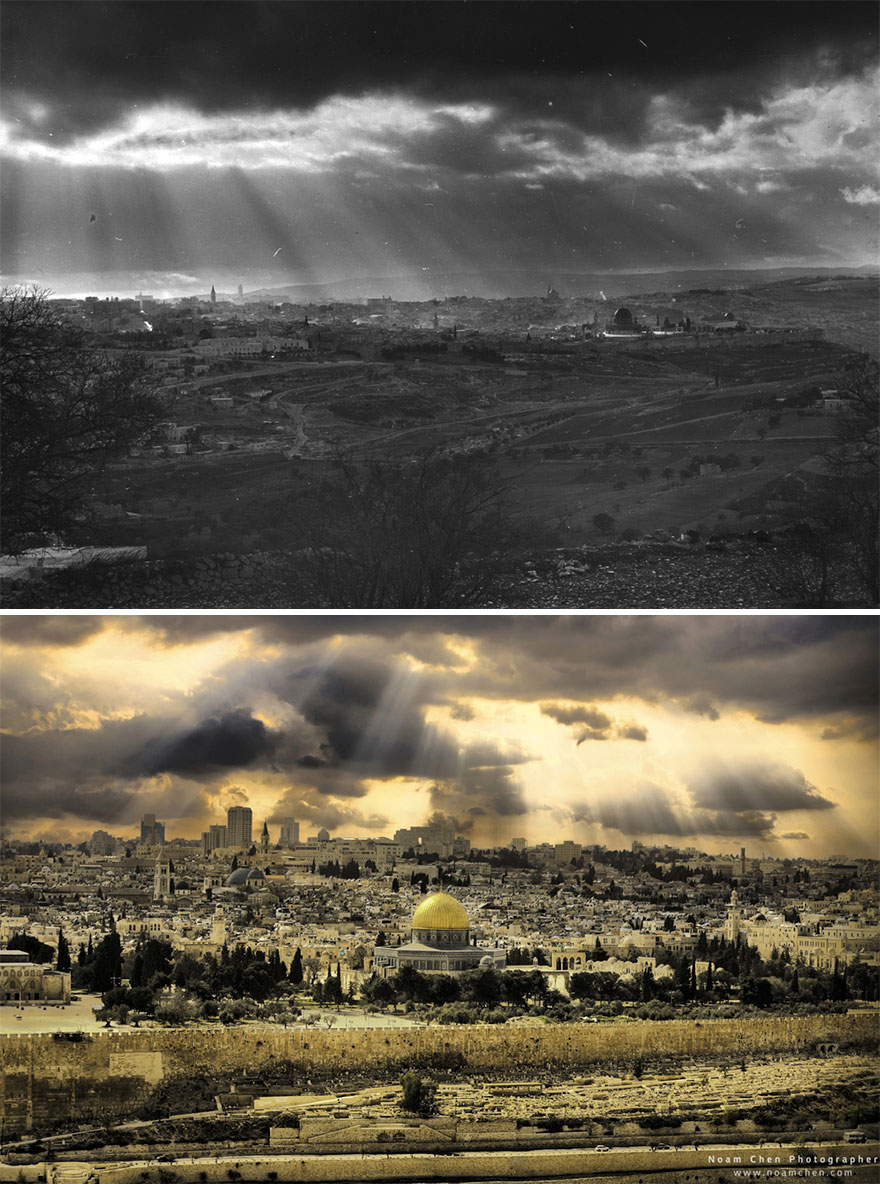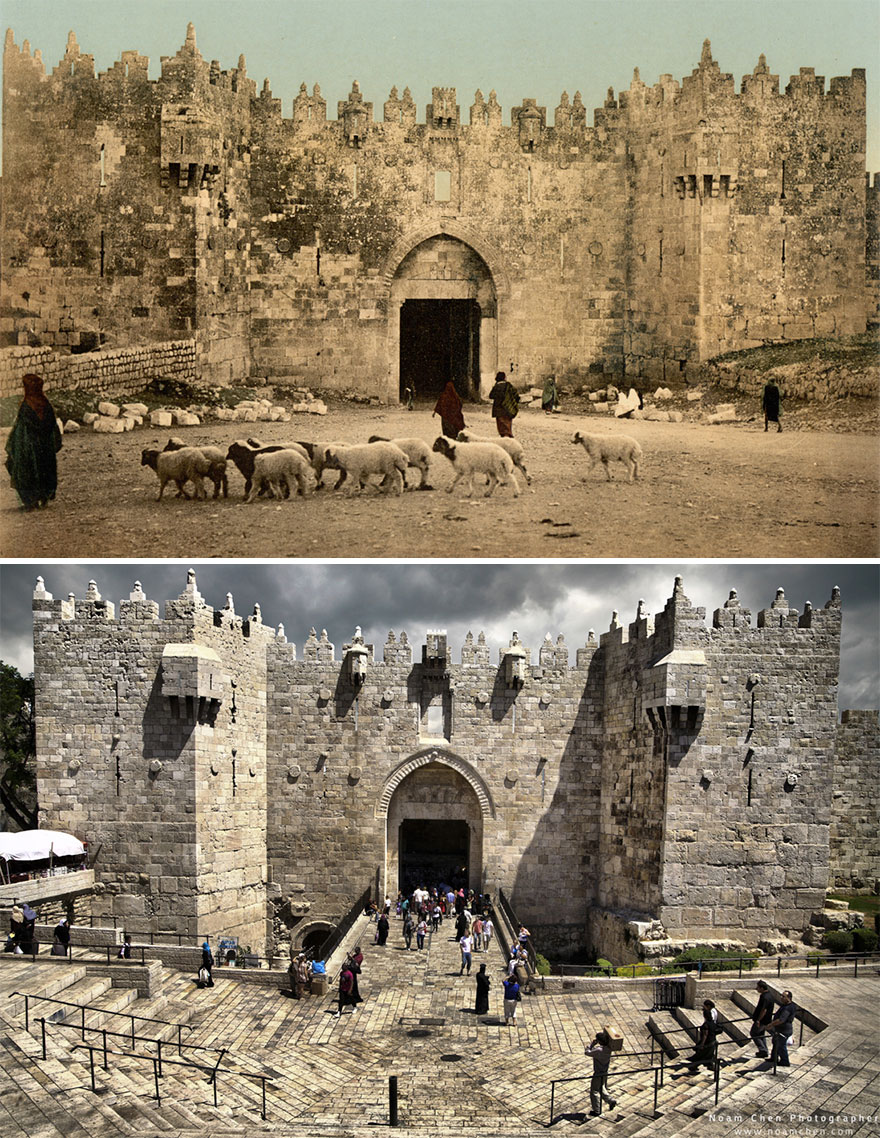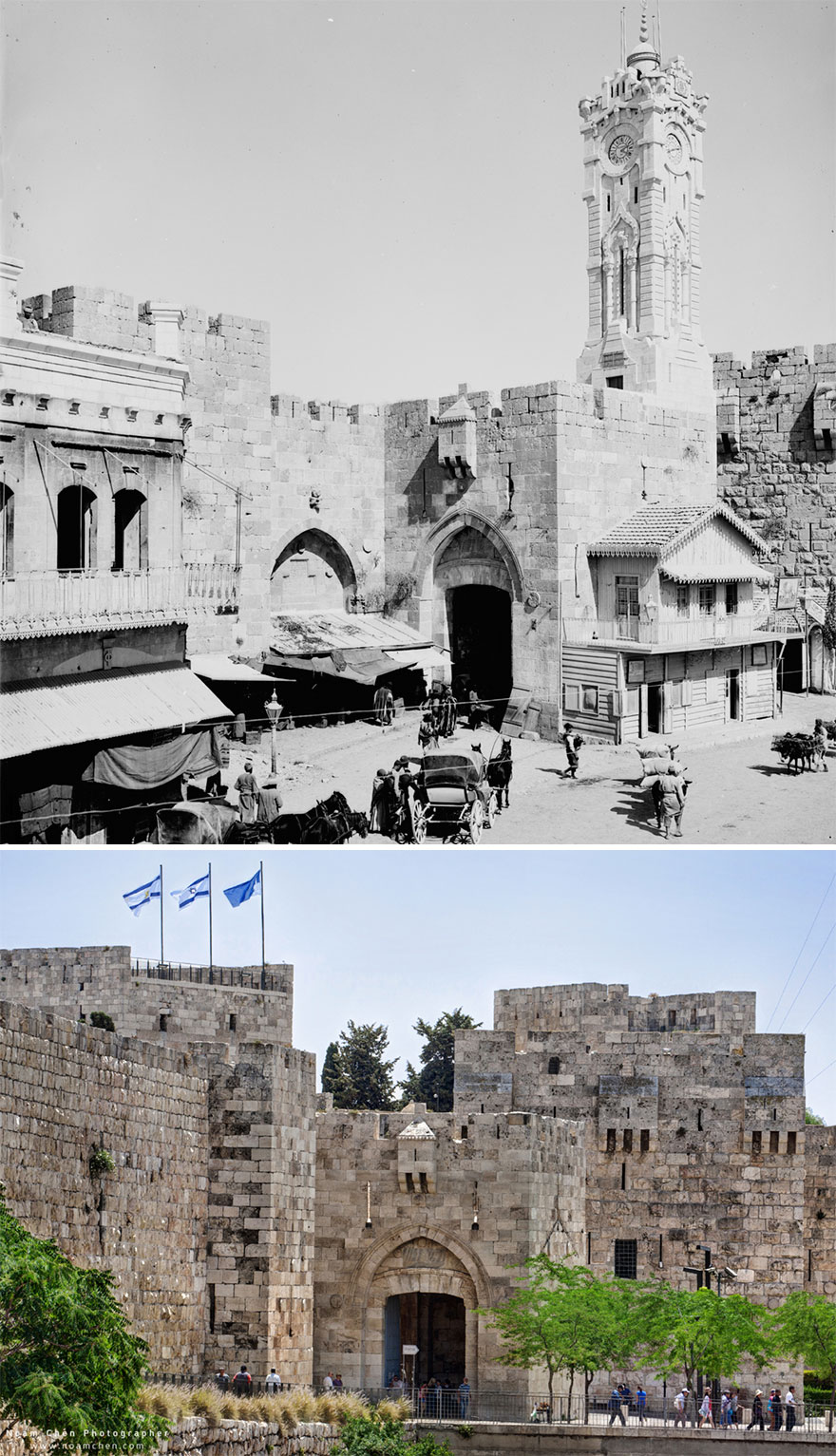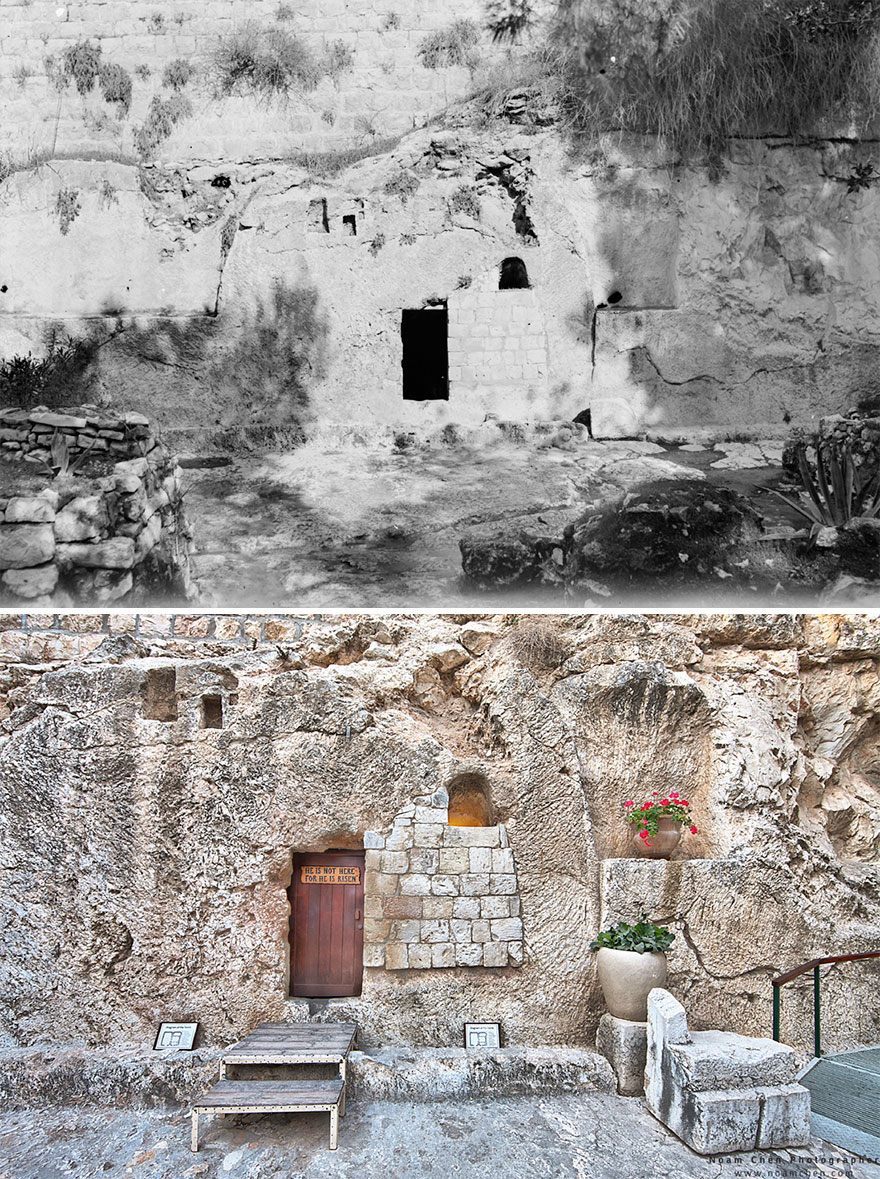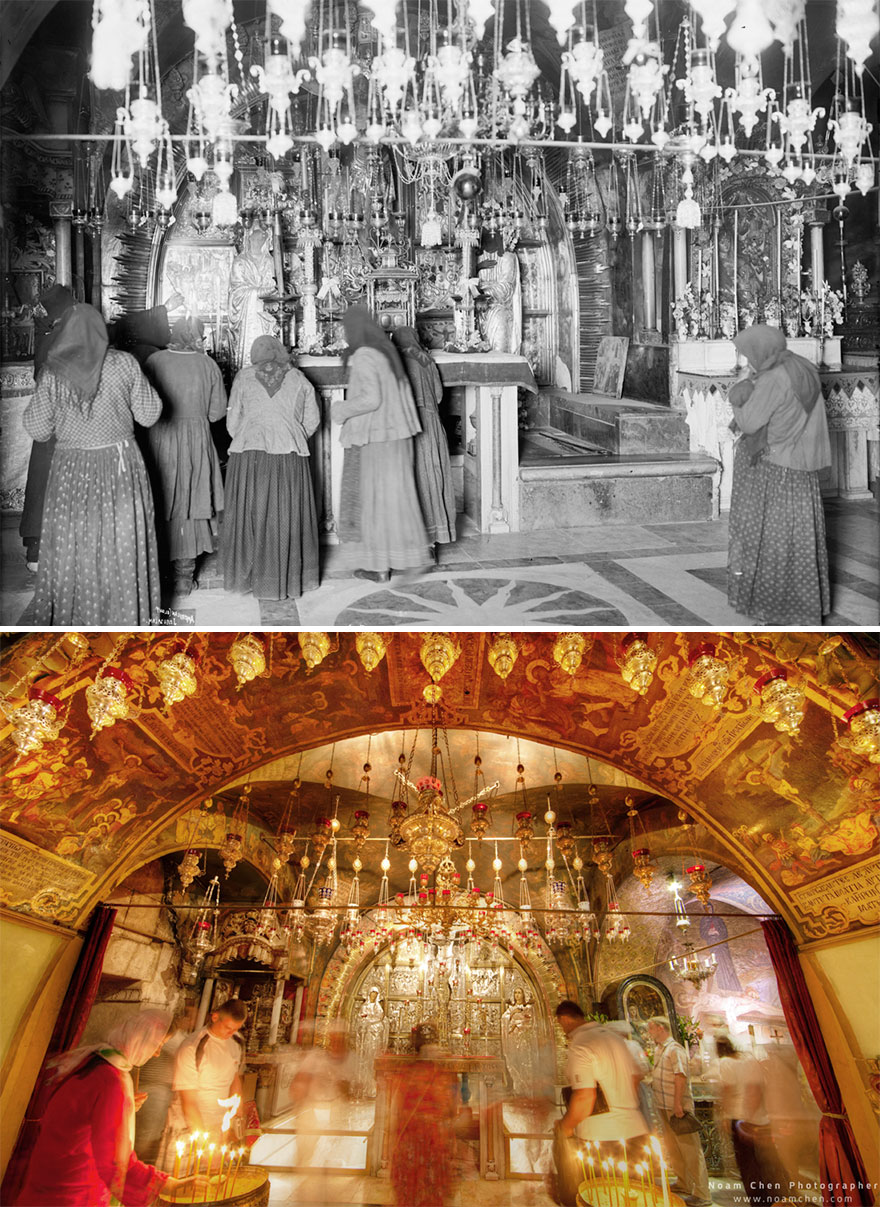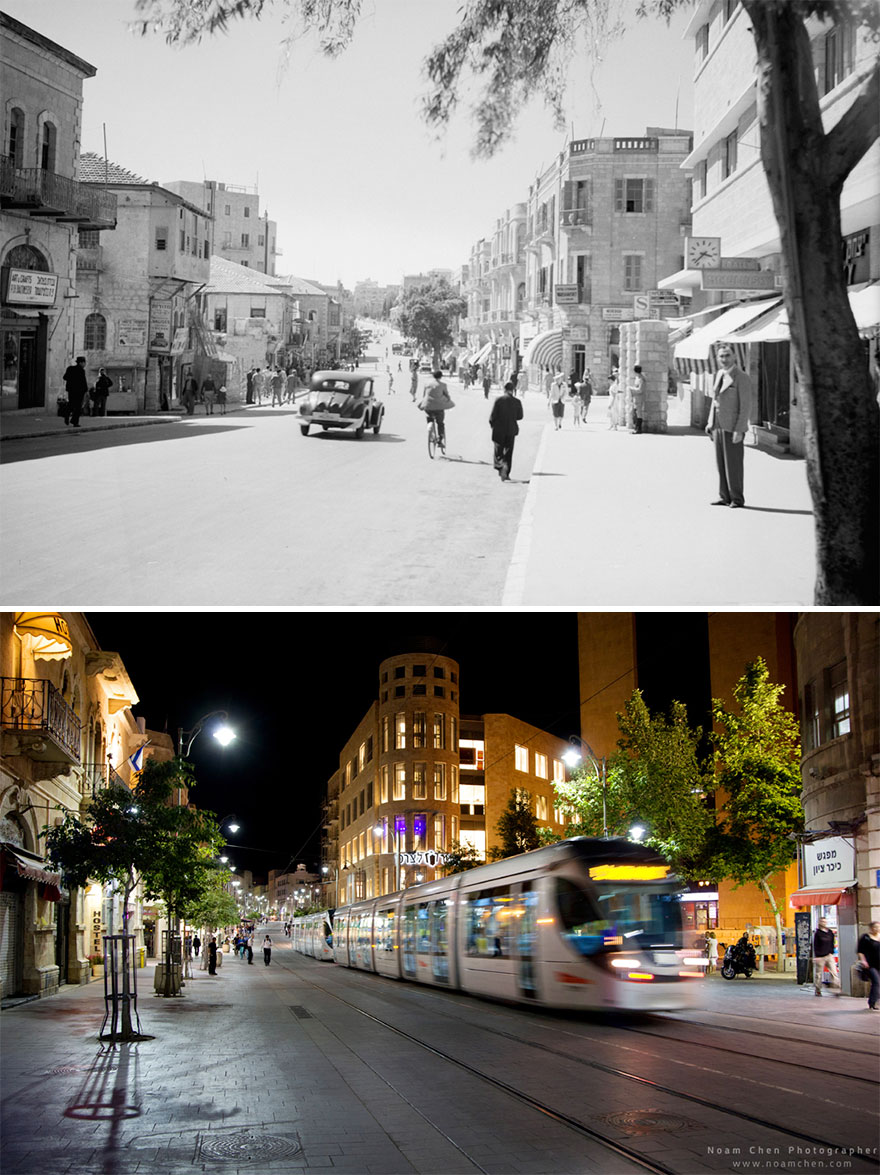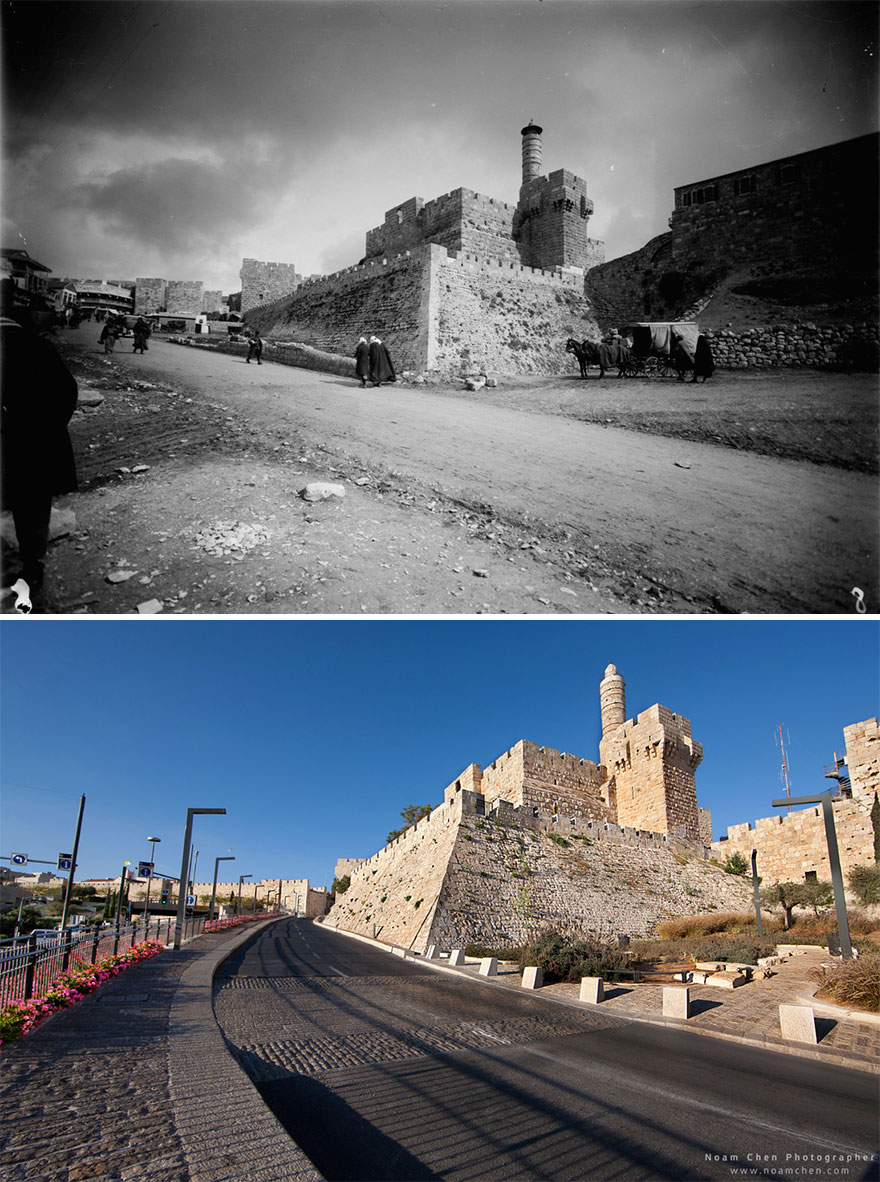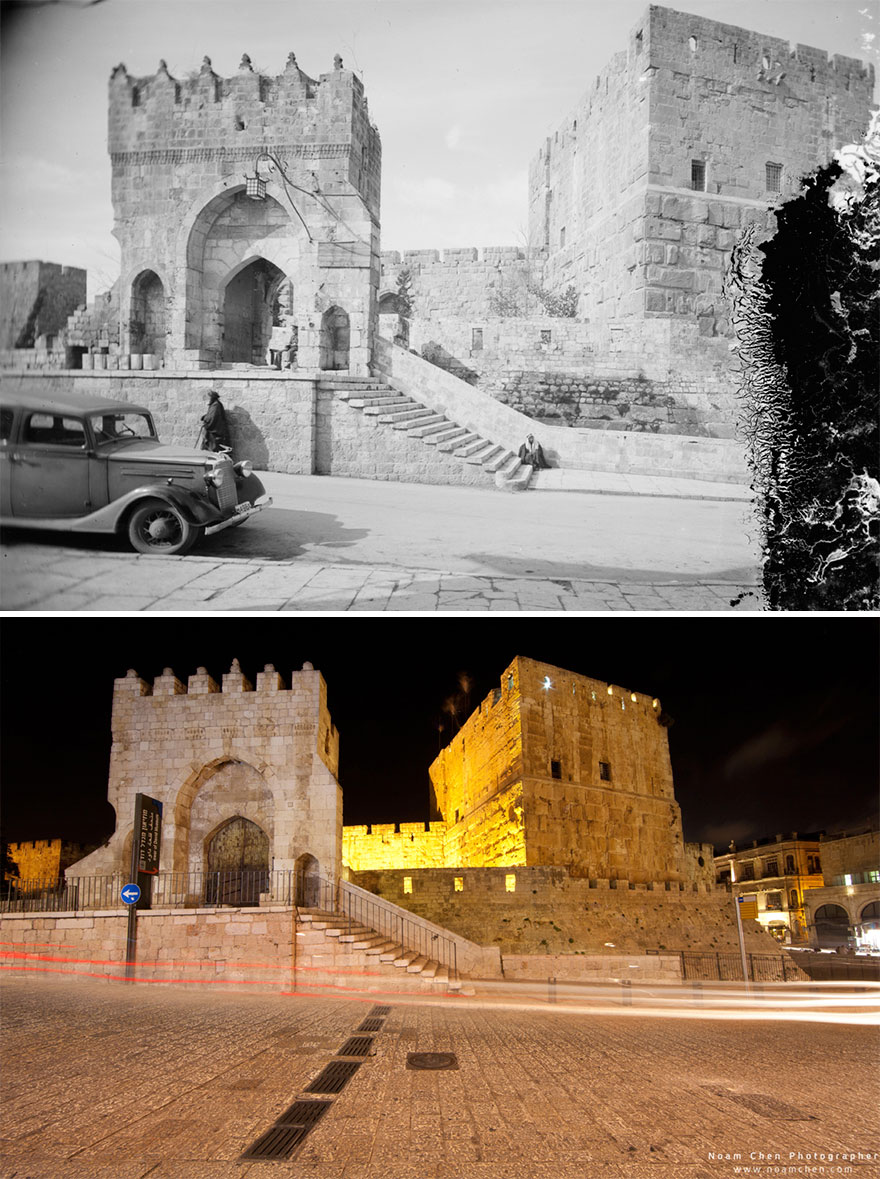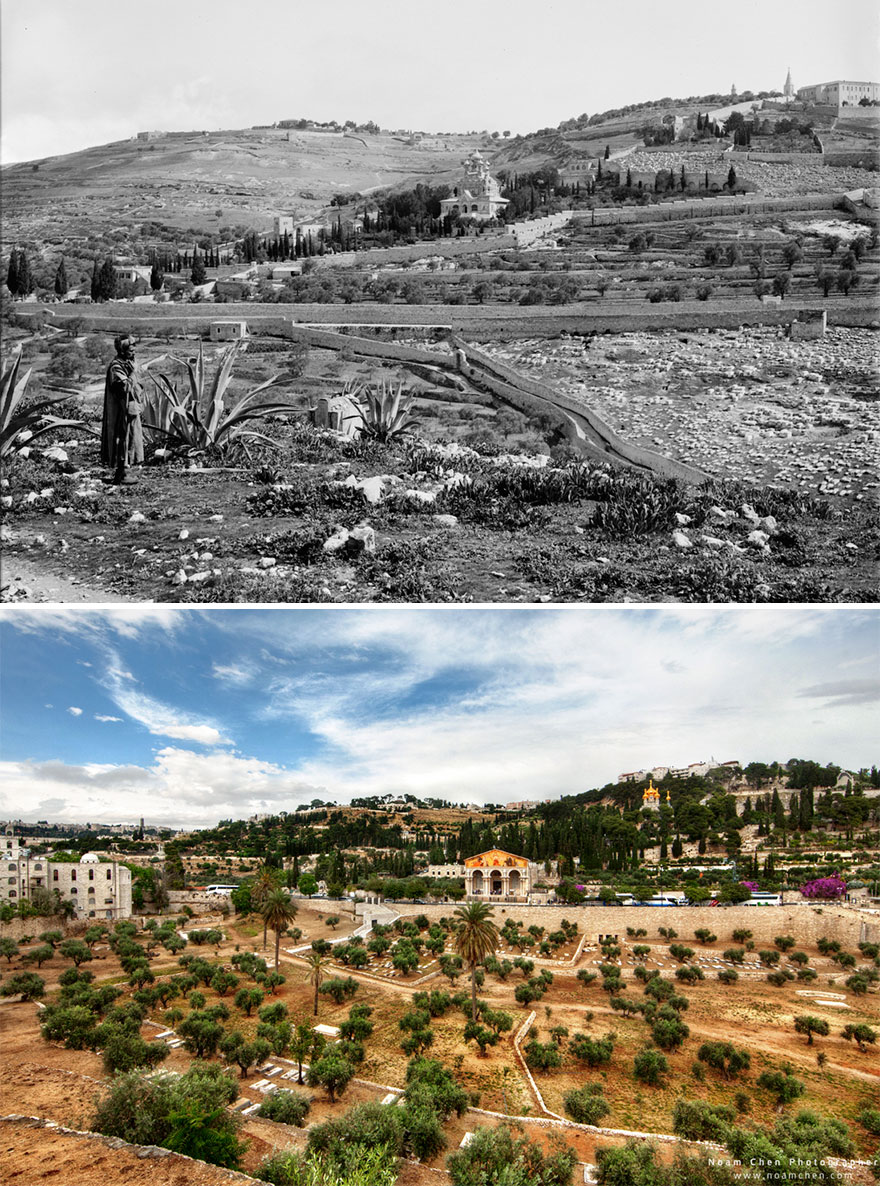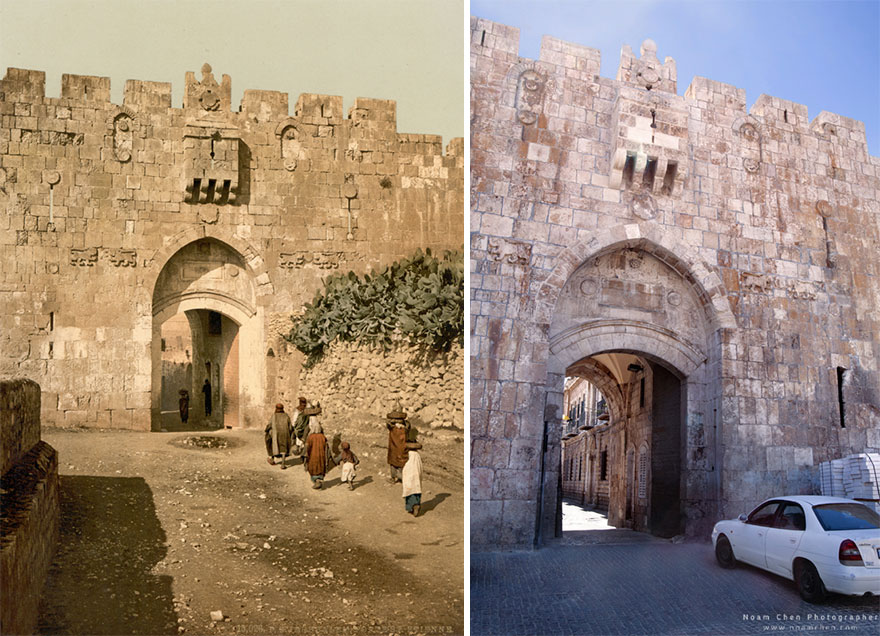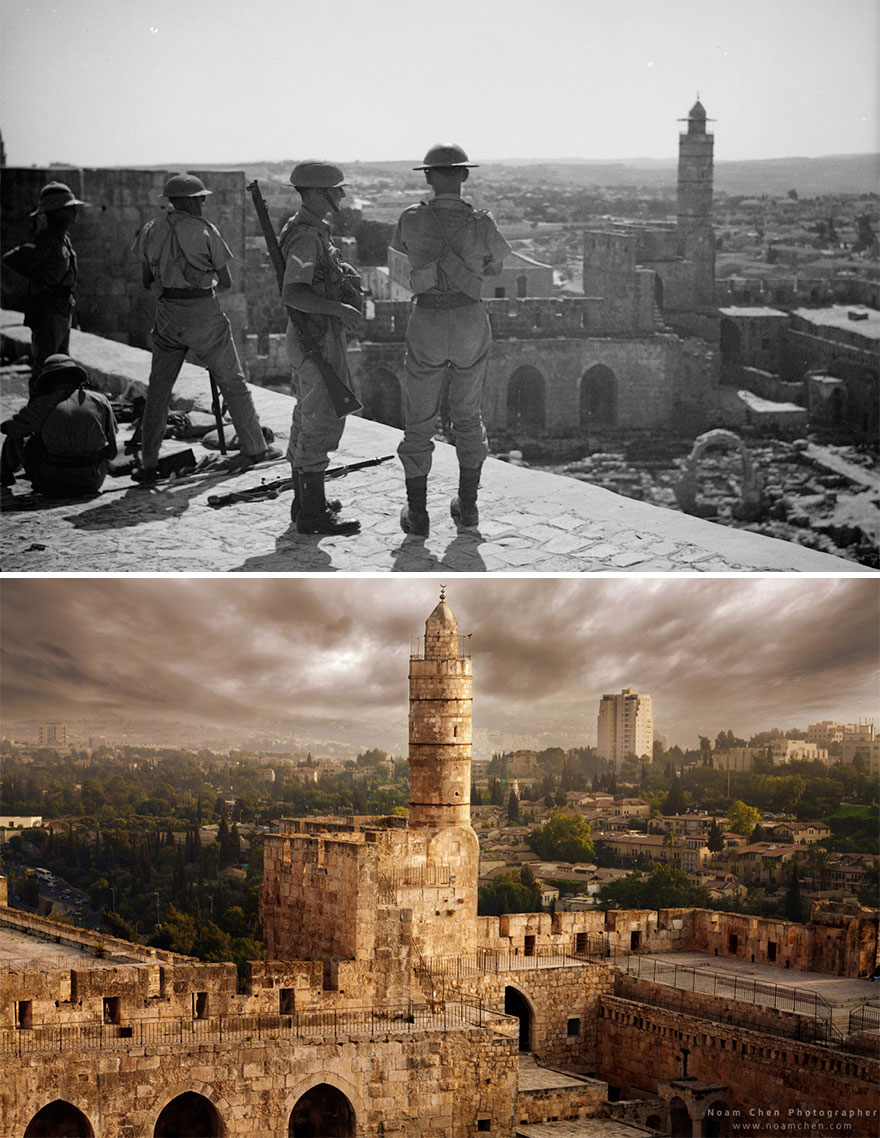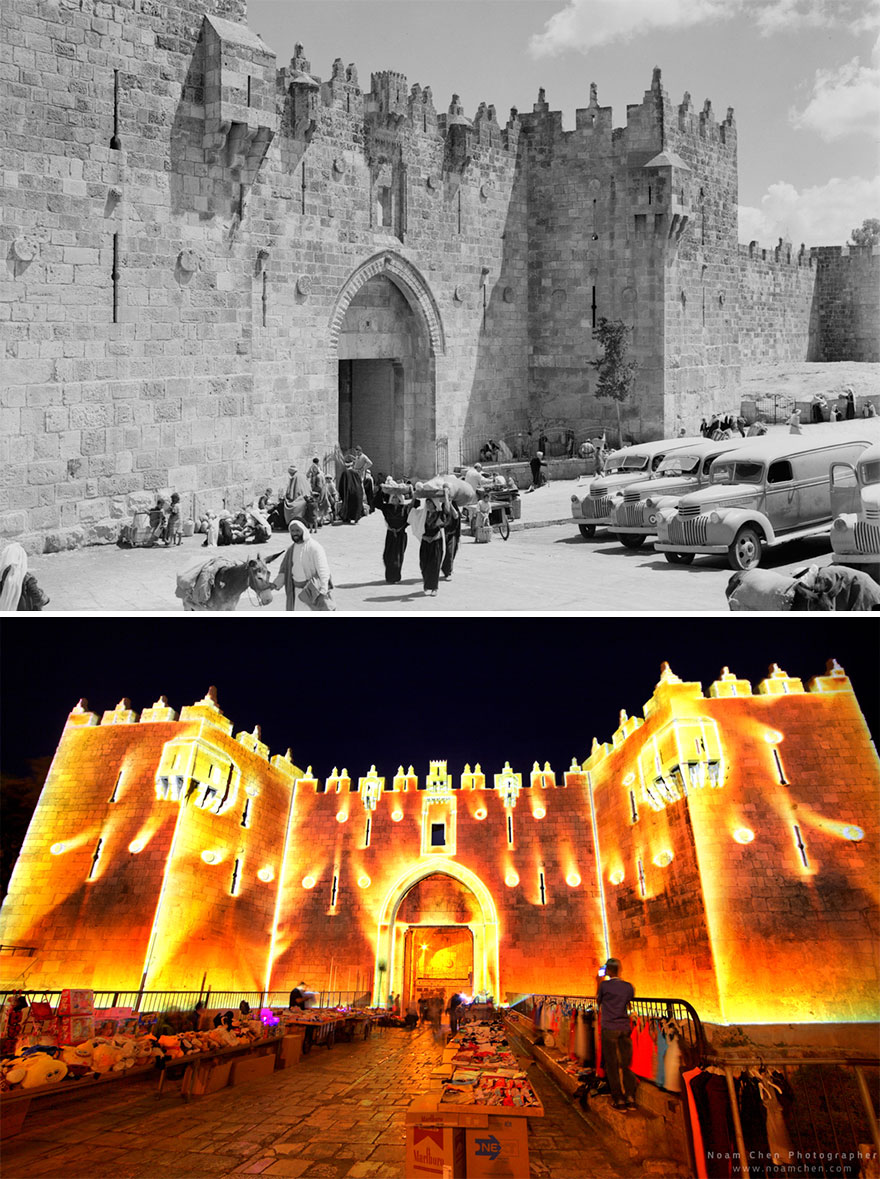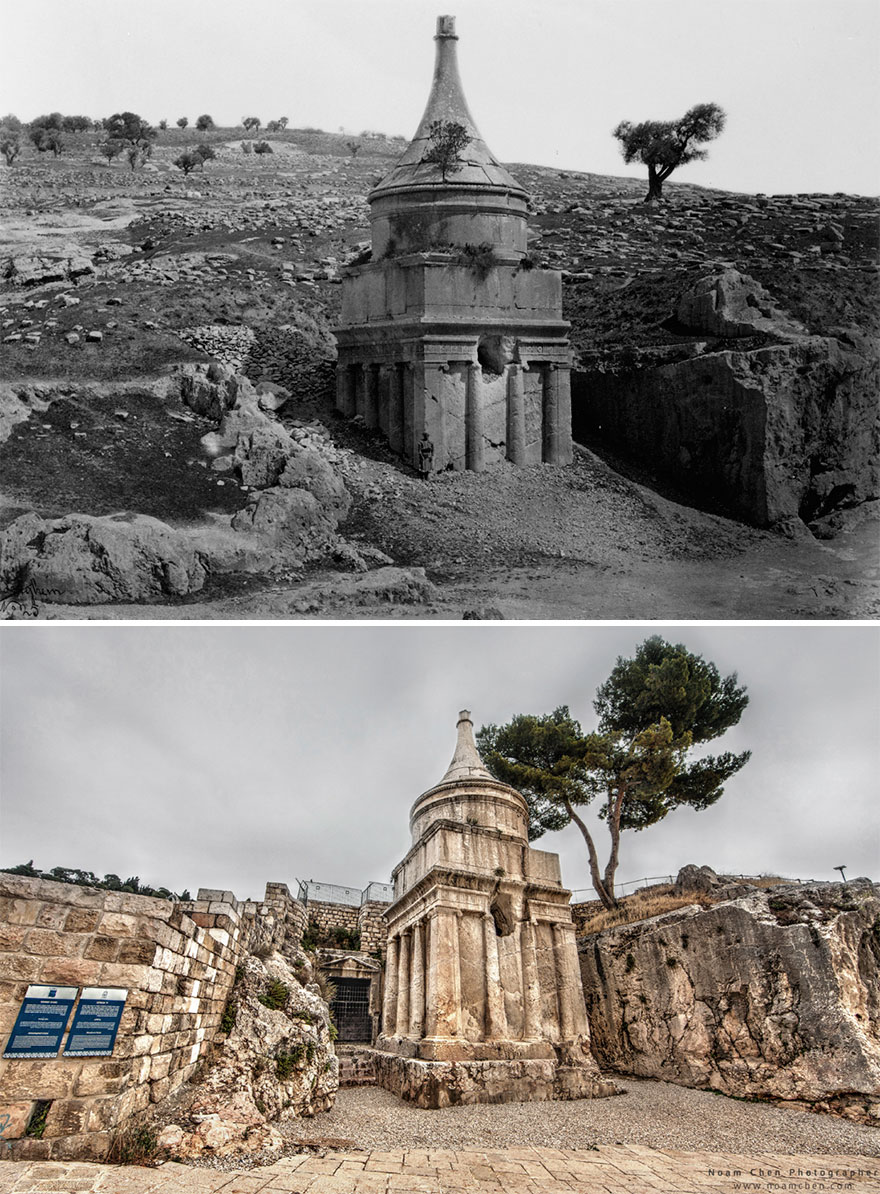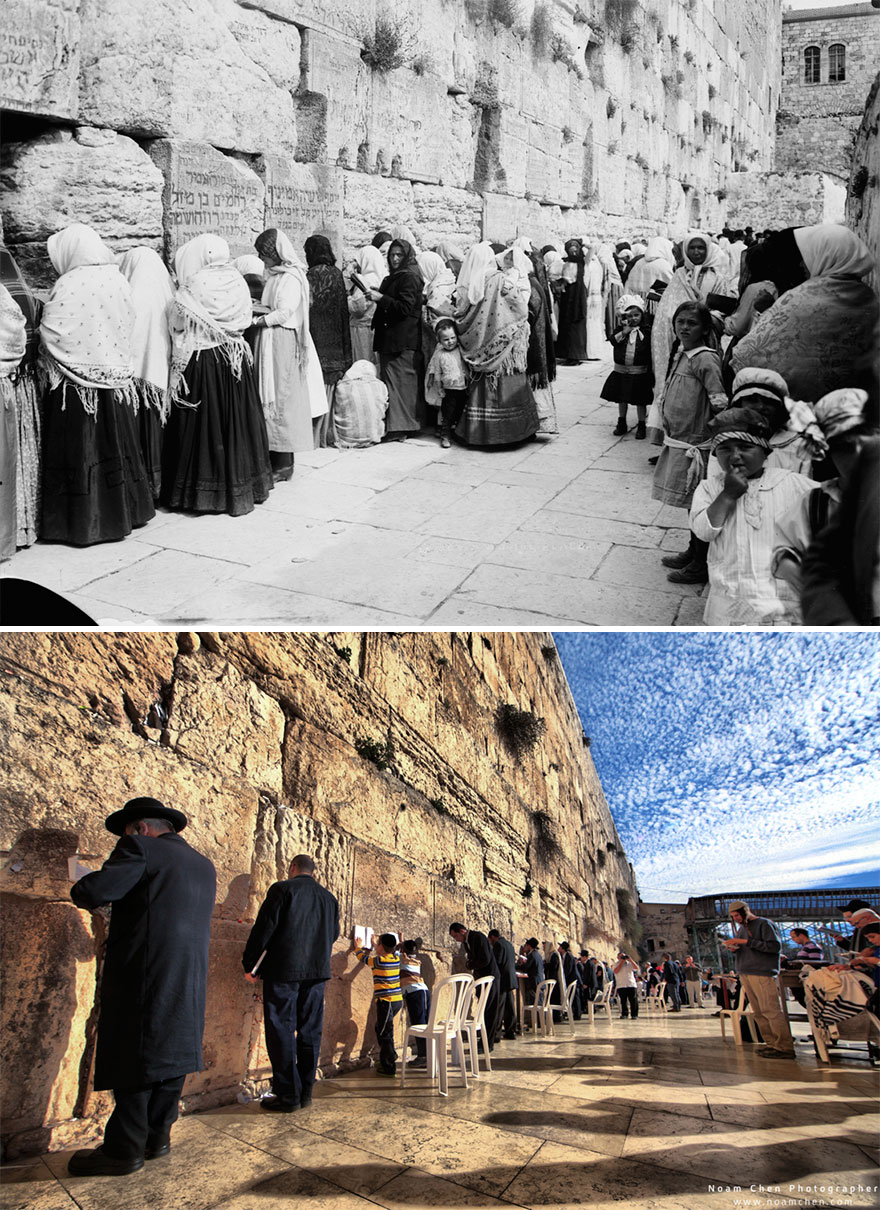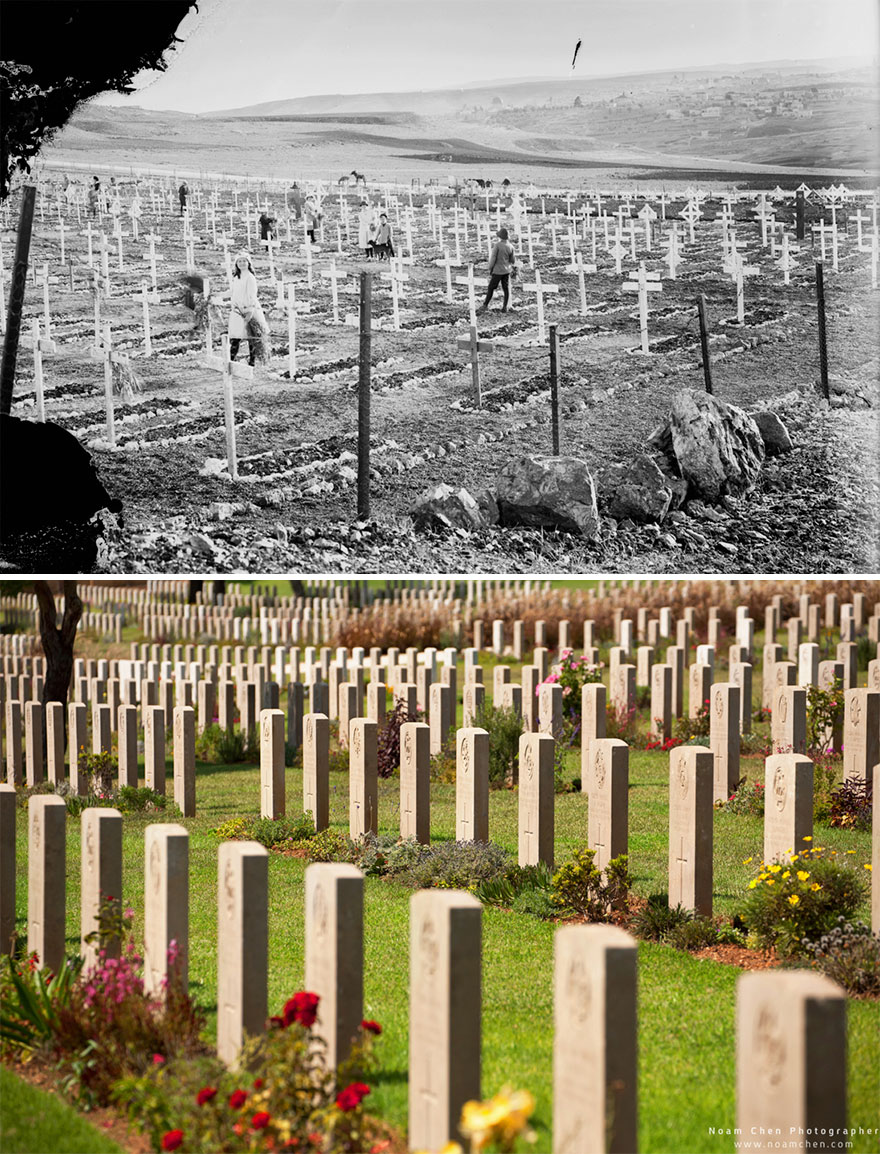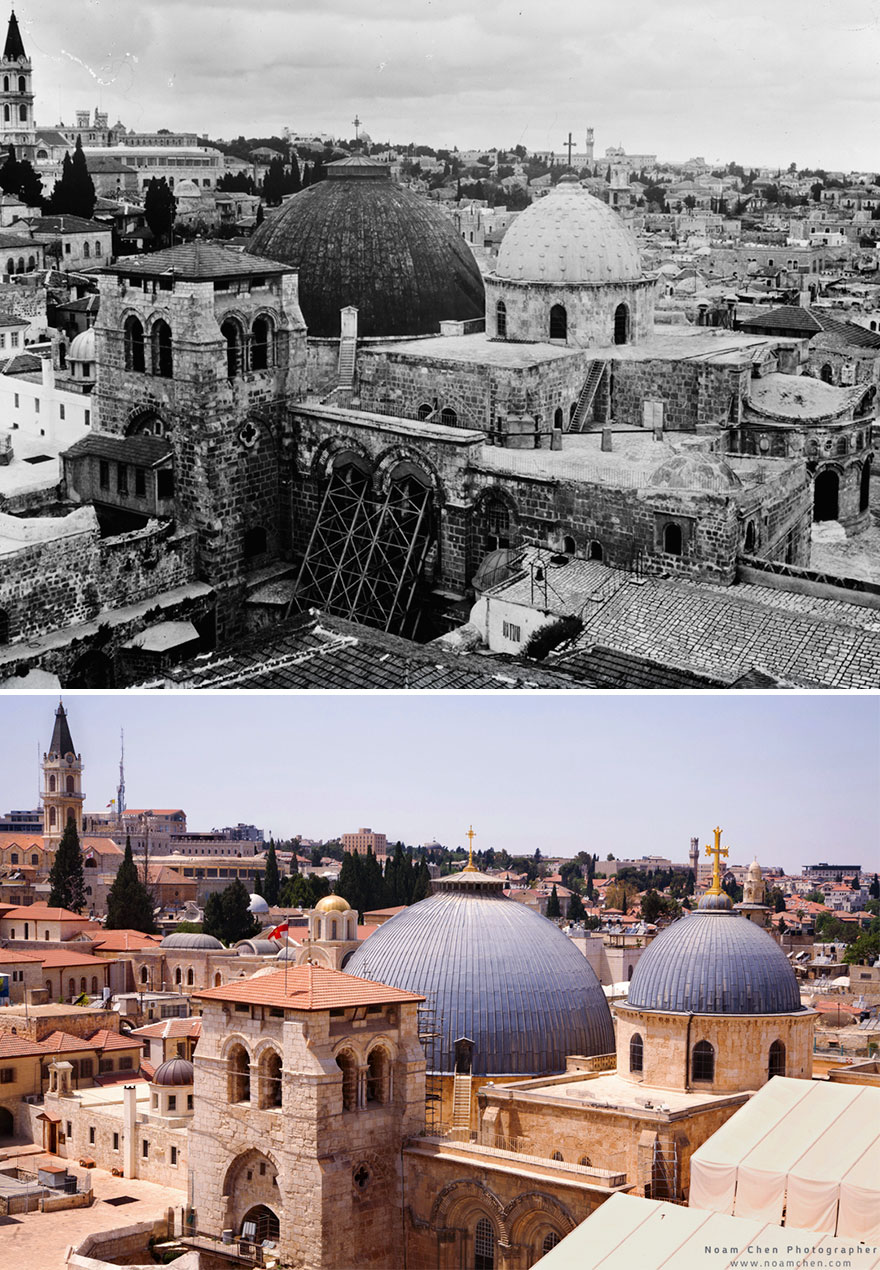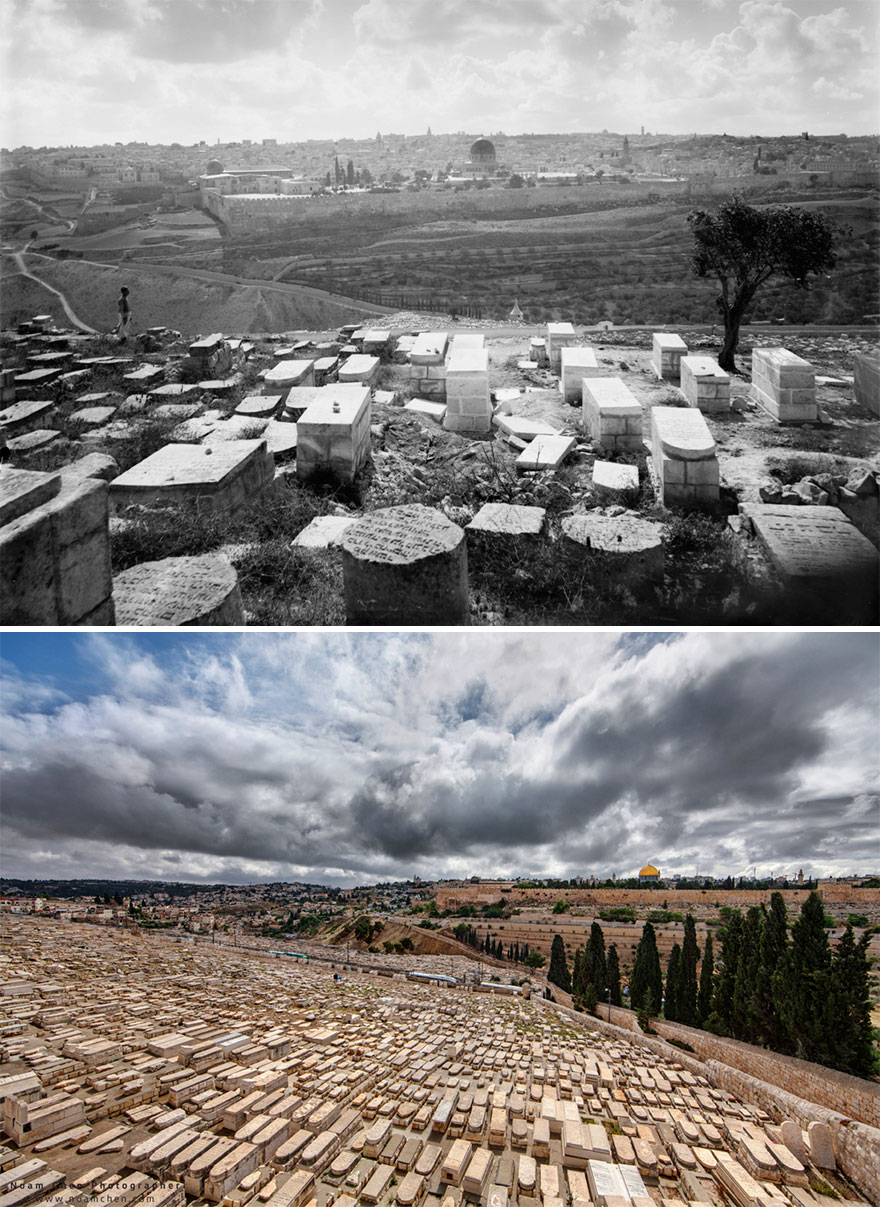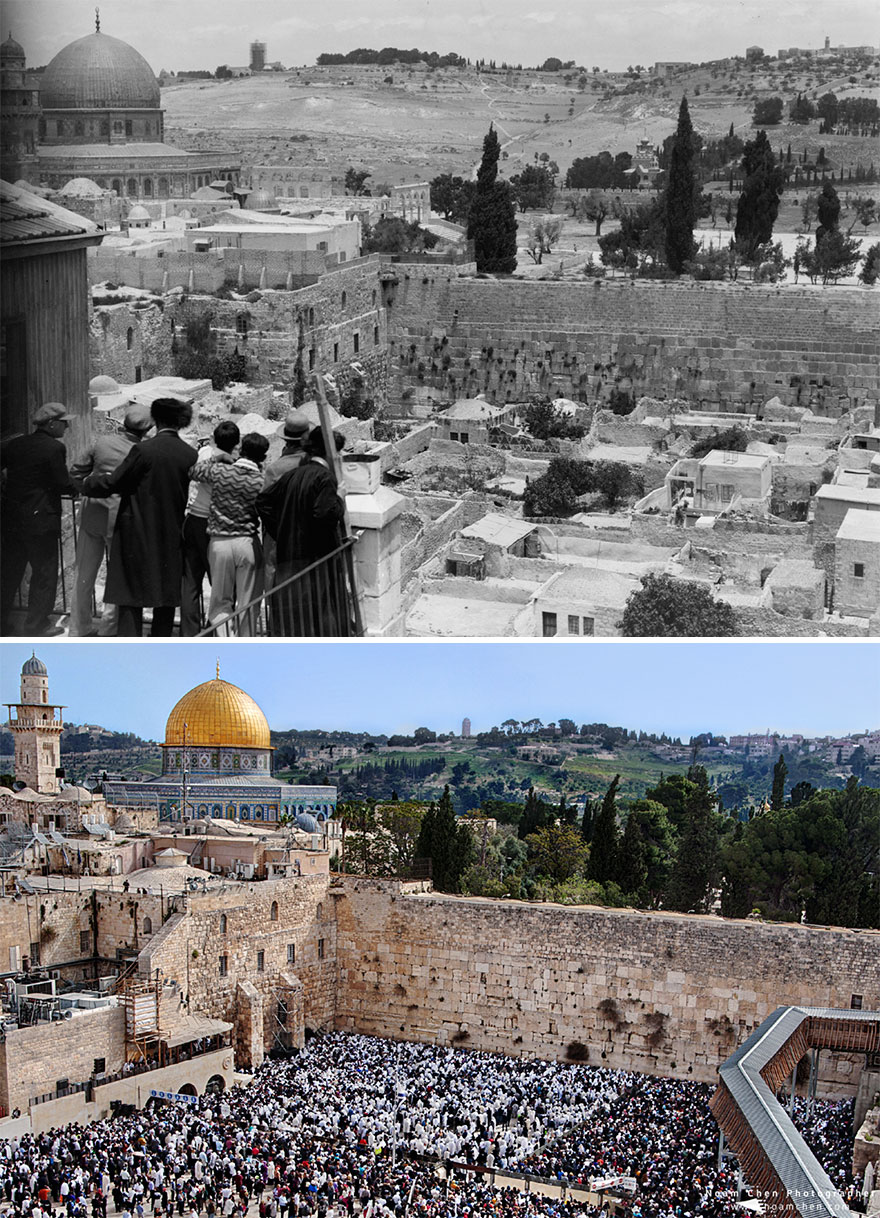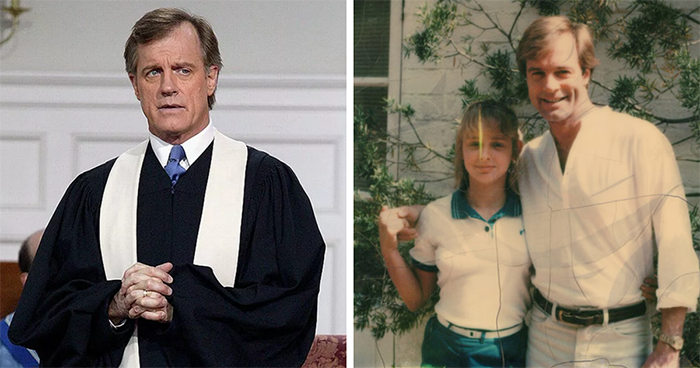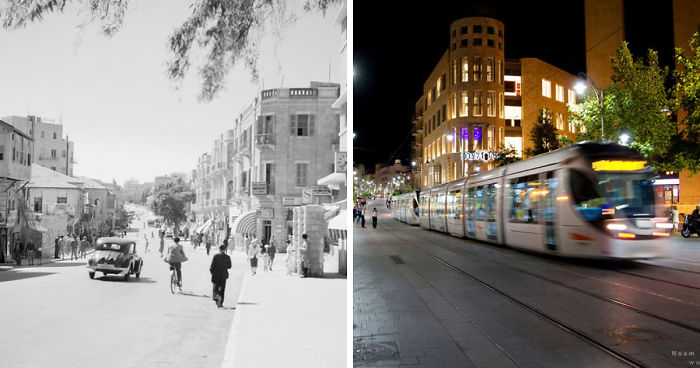
7Kviews
A Journey Through Time In Jerusalem: How Centuries Have Changed The City
As part of my job as a photographer, I get to travel around the world and document many beautiful landscapes and famous tourist attractions. Quite often, I get asked what my favorite place to visit is. My answer can be somewhat of a surprise, as it actually goes back to my home country of Israel, and specifically its oldest city, Jerusalem.
In Jerusalem, almost everywhere you go, there's something so fascinating to find. Jerusalem is one of the holiest and most important cities on earth, housing many sacred sites to all major religions.
2017 marks the 50th anniversary to the reunification of this holy city, which in June 1967 was liberated from Jordanian occupation.
Recently I came across a rare collection of vintage photos which had been unveiled by the U.S. Library of Congress. The collection uncovers stunning scenes of Jerusalem during the 19th and early 20th centuries. When I saw these amazing old photos, I set out to do a 'then and now' comparison series with my own photos from the city I've been documenting so extensively.
Some photos were taken from the very same angle, others from a similar point of view, and the result is a remarkable showcase of changes and similarities alike.
Join me on a journey through time in Jerusalem, and witness the before and after of this eternal city.
More info: noamchen.com
This post may include affiliate links.
View Of The Old City. Some Things Never Change… Rays Of Light Shining Upon Jerusalem’s Old City
Above: in 1942. Below: today.
Damascus Gate: One Of Jerusalem’s Most Beautiful Gates, Built In 1537 By The Ottoman Empire
Above: in 1890, a rare photo in color. Below: today.
Jaffa Gate: One Of The Main Entrance Gates To The Old City
Above: in 1918, still featuring the clock tower that was built in 1907 by the Ottoman Empire. It was destroyed in 1922 by the British Mandate (implemented in the area just two years prior). They believed it didn't fit with the city's skyline. Below: today.
The Garden Tomb: Discovered Only In 1867, The Garden Tomb Is Considered By Some Groups To Be A Possible Site Of The Burial And Resurrection Of Jesus
Above: in 1898. Below: today.
The Calvary/golgotha: The 12th Station Of The Cross, Inside The Church Of The Holy Sepulchre
Above: in 1898. Below: today.
A Scene From Jaffa Road: Jerusalem's Main Street, Used To Be The Leading Route Between The Old City Of The Jerusalem To The Port City Of Jaffa. Today It's Lined Up With Shops And Restaurants
Above: in 1940. Below: today, Jaffa Street is closed to any other means of transportation but the light rail which began operating in 2011.
Entrance To The Tower Of David Museum: The Tower Of David Museum Was Opened In 1989 And Contains Archeological Ruins Dating Back Some 2,700 Years
Above: 1930's. Below: today.
Zion Gate: The Main Entrance Gate To The Jewish Quarter In The Old City
Left: in 1938, when the gate was closed and guarded by British soldiers during the Arab revolt against Jews and the British colonial rule. Right: today, bearing the scars of Israel's war of Independence (1948). Numerous bullet holes are still visible to this day, as the gate has never been restored.
Mount Of Olives: View From The Kidron Valley
Above: in 1898. Below: today, when the landscape is dominated by the golden Church of All Nations, built between the years 1919-1924.
The Lions’ Gate: One Of The Main Entrance Gates To The Old City
The gate was named the Lions’ gate after the four carvings just above its entrance, which were placed by Sultan Suleiman the Magnificent in the 16th century.
Left: a rare color photograph from 1890. Right: today.
The Tower Of David
Above: in 1938, British troops guarding the site. Jerusalem was under British Mandate rule before the establishment of the state of Israel in 1948. Below: today, everyone can enjoy the stunning views from its roof.
Damascus Gate
Above: in 1925, typical view with donkeys and early 20th century cars. Below: today, art installations during Jerusalem’s annual Festival of Light.
Tomb Of Absalom: Ancient Monumental Tomb Carved In The Rock, Traditionally Associated With Absalom, The Son Of King David Of Israel
Above: in 1860. Below: today.
The Western Wall
Above: in 1898, when some stones still contained writings in Hebrew, believed to be the work of visitors who wished to commemorate their names upon the wall. Below: today, the tradition has evolved into placing notes in between the stones.
The British War Cemetery: Cemetery Of Fallen Soldiers Who Died In The Region During World War I
Above: in 1917. Below: today.
Rooftops Of The Christian Quarter: Dominated By The Two Domes Of The Church Of The Holy Sepulchre, One Of The Holiest Sites In Christianity, Believed To Be Where Jesus Was Crucified, Buried And Resurrected
Above: in 1898. Below: today.
The Jewish Cemetery On The Mount Of Olives: Burial On The Mount Of Olives Began In The Period Of The First Jewish Temple, Some 3,000 Years Ago
Above: in 1898. Below: today.
Overlooking The Temple Mount And Western Wall: The Temple Mount Is The Very Heart Of Jerusalem And Is Probably The Most Important Religious Site In The World, Directly Linked To The Core Of The Bible
The Western Wall is the only remnant of the Second Jewish Temple, destroyed in 70 CE. It is now the holiest site in Judaism.
Above: in 1920. Below: today. The Western Wall yard was built after the liberation in 1967 to make room for the masses of worshipers who could once again reach the site to pray.
David Citadel: The Citadel Dates Back To The Mamluk Era And Was Built On The Site Of An Earlier Fortification By King Herod
Above: Lancers marching through, overlooking the Citadel in 1900. Below: overlooking the Citadel today.

 Dark Mode
Dark Mode 

 No fees, cancel anytime
No fees, cancel anytime 



